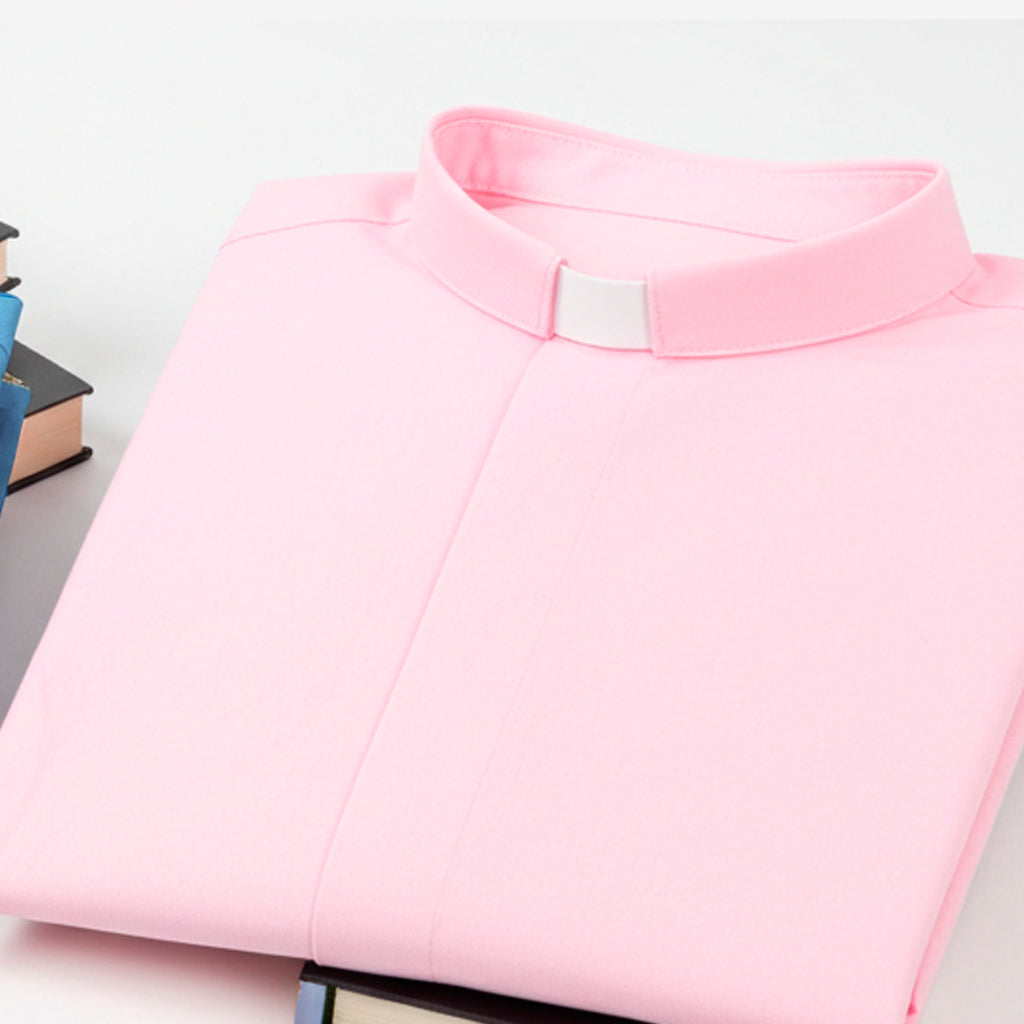My faith was born in the class of '53
Educating Skipton
A young teacher from Belfast, whose wedding I attended, had accepted a teaching post at a primary school near the market town of Skipton, Yorkshire.
She had a lovely Irish accent and on her first day she asked the pupils to guess where she came from. Hands went up and several different origins were suggested, all of them wrong.
Then one lad chirped up and said that he knew where she was really from. “Tell me,” said the now relieved young teacher.
“Well Miss, I am not too sure but I think you must come from the other side of Skipton!”
The old register
Her story reminded me of my own school days when I and my classmates may well have made the same naive comment. For when we were young and developing, our home town was our universe.
I relived those days on a recent visit to my old primary school. Sitting excitedly in the old library, I examined the historic pupil’s entrance registers and fell upon my own details written some sixty seven years previously.
They were scrawled in my headmaster’s hand writing and alongside my name and address, the notes included the date I entered and left the school and where I had moved on to.
The question I was keen to answer was what had my schooldays taught me about God and how much had they contributed to my decision to become a priest in later life?
School rituals
I remembered of course that we always started each school day with a short assembly, which included a prayer and a hymn. At noon we sang a children’s Grace and upon dismissal at the end of the school day, we prayed for God’s care on our homeward journey.
Aside from these rituals, there was little religious teaching. I can only assume that because most of the children went to one of the village’s Sunday schools it was anticipated that you would receive your religious education there.
And this was a fair assumption to make as by the time we left primary school most of us held the basics of Christian truth and knew the stories of Jesus.
Stepping up
Because I failed my eleven plus exams, I was admitted into a secondary modern rather than a grammar school. Looking back at this school, I believe the teaching of religious education was spread between a few teachers to fill in their free periods.
The teaching was basic to say the least, including week after week of chanting the books of the Bible. One positive outcome of this of course was that I can still easily recall the order of the books 60 years later.
A turning point I think arrived in our second year of secondary school. Those who wished to study RE in more depth were given the opportunity to be taught in our local church by the vicar himself.

It was informal and unstructured but brilliant since he involved us in discussions about our faith and belief. I am indebted to him to this day for bringing the Gospel to life and making me realise that Christianity is a personal experience.
At the end of that year I went on to technical school and it was here that my religious horizons were really broadened.
We received tuition from a gifted young teacher who shared with us his knowledge of not only Christianity and its denominational emphases but Judaism and Islam too.
Whilst I had seen many Jews in their dark dress during visits to Manchester, I do not believe I had spoken to one and I'd certainly never met a Muslim.
In 1954 there were few ethnic minorities so far north. So you can imagine how enlightening this school teaching was for that time.
Christian development
It was around this period that I joined a young Christian members group. The group met each Sunday evening with our minister and after singing Gospel songs we discussed enthusiastically all aspects of Christian belief.
Here we were free to express our opinions and gradually we developed our theology. Reflecting back on this today, I think being exposed to this environment helped form the basis of my Christian development.
Many people ask me today whether I knew I would be a priest one day. I always tell them that at age 17 I did believe God wanted me to be a Christian Minister. However, at that moment I really had little concept of what this involved.
Others used to ask me whether I believed my name Priestly, meaning priest-like, had called me to be a priest. "Not really", I would always reply.
But later when my mum had suffered a heart attack and had just hours to live, I did ask her why she had called me Priestly. Her reply was, “One day you will know!” So maybe I was always destined to be a priest from the beginning after all.
The Long Road
As many of you reading this will know, it is a long road becoming a priest with many years of preparation and service.
For me this road was 45 years long as I was accepted into priesthood late in life. But the advantage was that those decades had given me the tools to serve God in the most effective way.
Maybe God was aware that my personal enthusiasm may have got the better of me had I been ordained when much younger.
Ordained instead as an older and wiser man, I had learned the importance of always being understanding and cooperative during a long career, so I was able to use these qualities to ensure harmony in my parish.
Also the many years of seeking to know God’s intention for me alongside my secular career was good for a fuller understanding of being a Christian in a secular society.
The photograph
The visit to my old primary school had been prompted by a photograph from 1953 of my class at school.

Whilst I could recollect some of the names of the other scholars, I was unable to recall many others. So I had sought the famous register to help fill in the blanks.
Unfortunately the school had been flooded some time ago and most archive documents had been lost. Marvellously though the register I required and its predecessor was still intact.
Not only did I find my own name but I also found the entry for my sister’s dated three years later and my mum’s in 1915. Amazingly I also spotted my grandfather's in 1882, which was a wonderful discovery.
I suspect that of my class of ‘53’ the great majority will have retired from their careers and are in their early seventies now.
Sixty years has drawn us apart and with family, friends and church being the order of my life I have to say I am so sad that I have made little effort to trace the rest of class ’53’.
Since now I hold all of their names, it would be good to come together one day soon and just discover what’s happened to each one of us in those sixty odd years?
Perhaps a seed was sown at school for one of them too and they have trodden the same path as me in the service of God.
The Reverend Priestly Brook, an Anglican priest, retired in August 2012 from the Colne and Villages Team Ministry in East Lancashire. His Bishop has granted him a licence with Permission to Officiate. He is married to Christine, with six grown up children. He is a well known preacher and after dinner speaker in the North of England.
A young teacher from Belfast, whose wedding I attended, had accepted a teaching post at a primary school near the market town of Skipton, Yorkshire.
She had a lovely Irish accent and on her first day she asked the pupils to guess where she came from. Hands went up and several different origins were suggested, all of them wrong.
Then one lad chirped up and said that he knew where she was really from. “Tell me,” said the now relieved young teacher.
“Well Miss, I am not too sure but I think you must come from the other side of Skipton!”
The old register
Her story reminded me of my own school days when I and my classmates may well have made the same naive comment. For when we were young and developing, our home town was our universe.
I relived those days on a recent visit to my old primary school. Sitting excitedly in the old library, I examined the historic pupil’s entrance registers and fell upon my own details written some sixty seven years previously.
They were scrawled in my headmaster’s hand writing and alongside my name and address, the notes included the date I entered and left the school and where I had moved on to.
The question I was keen to answer was what had my schooldays taught me about God and how much had they contributed to my decision to become a priest in later life?
School rituals
I remembered of course that we always started each school day with a short assembly, which included a prayer and a hymn. At noon we sang a children’s Grace and upon dismissal at the end of the school day, we prayed for God’s care on our homeward journey.
Aside from these rituals, there was little religious teaching. I can only assume that because most of the children went to one of the village’s Sunday schools it was anticipated that you would receive your religious education there.
And this was a fair assumption to make as by the time we left primary school most of us held the basics of Christian truth and knew the stories of Jesus.
Stepping up
Because I failed my eleven plus exams, I was admitted into a secondary modern rather than a grammar school. Looking back at this school, I believe the teaching of religious education was spread between a few teachers to fill in their free periods.
The teaching was basic to say the least, including week after week of chanting the books of the Bible. One positive outcome of this of course was that I can still easily recall the order of the books 60 years later.
A turning point I think arrived in our second year of secondary school. Those who wished to study RE in more depth were given the opportunity to be taught in our local church by the vicar himself.

It was informal and unstructured but brilliant since he involved us in discussions about our faith and belief. I am indebted to him to this day for bringing the Gospel to life and making me realise that Christianity is a personal experience.
At the end of that year I went on to technical school and it was here that my religious horizons were really broadened.
We received tuition from a gifted young teacher who shared with us his knowledge of not only Christianity and its denominational emphases but Judaism and Islam too.
Whilst I had seen many Jews in their dark dress during visits to Manchester, I do not believe I had spoken to one and I'd certainly never met a Muslim.
In 1954 there were few ethnic minorities so far north. So you can imagine how enlightening this school teaching was for that time.
Christian development
It was around this period that I joined a young Christian members group. The group met each Sunday evening with our minister and after singing Gospel songs we discussed enthusiastically all aspects of Christian belief.
Here we were free to express our opinions and gradually we developed our theology. Reflecting back on this today, I think being exposed to this environment helped form the basis of my Christian development.
Many people ask me today whether I knew I would be a priest one day. I always tell them that at age 17 I did believe God wanted me to be a Christian Minister. However, at that moment I really had little concept of what this involved.
Others used to ask me whether I believed my name Priestly, meaning priest-like, had called me to be a priest. "Not really", I would always reply.
But later when my mum had suffered a heart attack and had just hours to live, I did ask her why she had called me Priestly. Her reply was, “One day you will know!” So maybe I was always destined to be a priest from the beginning after all.
The Long Road
As many of you reading this will know, it is a long road becoming a priest with many years of preparation and service.
For me this road was 45 years long as I was accepted into priesthood late in life. But the advantage was that those decades had given me the tools to serve God in the most effective way.
Maybe God was aware that my personal enthusiasm may have got the better of me had I been ordained when much younger.
Ordained instead as an older and wiser man, I had learned the importance of always being understanding and cooperative during a long career, so I was able to use these qualities to ensure harmony in my parish.
Also the many years of seeking to know God’s intention for me alongside my secular career was good for a fuller understanding of being a Christian in a secular society.
The photograph
The visit to my old primary school had been prompted by a photograph from 1953 of my class at school.

Whilst I could recollect some of the names of the other scholars, I was unable to recall many others. So I had sought the famous register to help fill in the blanks.
Unfortunately the school had been flooded some time ago and most archive documents had been lost. Marvellously though the register I required and its predecessor was still intact.
Not only did I find my own name but I also found the entry for my sister’s dated three years later and my mum’s in 1915. Amazingly I also spotted my grandfather's in 1882, which was a wonderful discovery.
I suspect that of my class of ‘53’ the great majority will have retired from their careers and are in their early seventies now.
Sixty years has drawn us apart and with family, friends and church being the order of my life I have to say I am so sad that I have made little effort to trace the rest of class ’53’.
Since now I hold all of their names, it would be good to come together one day soon and just discover what’s happened to each one of us in those sixty odd years?
Perhaps a seed was sown at school for one of them too and they have trodden the same path as me in the service of God.
The Reverend Priestly Brook, an Anglican priest, retired in August 2012 from the Colne and Villages Team Ministry in East Lancashire. His Bishop has granted him a licence with Permission to Officiate. He is married to Christine, with six grown up children. He is a well known preacher and after dinner speaker in the North of England.







